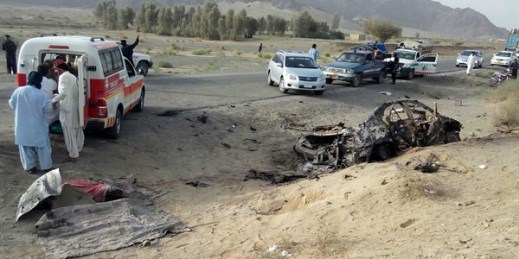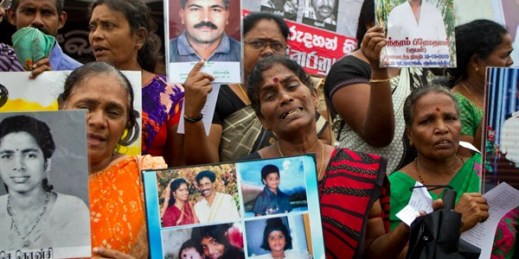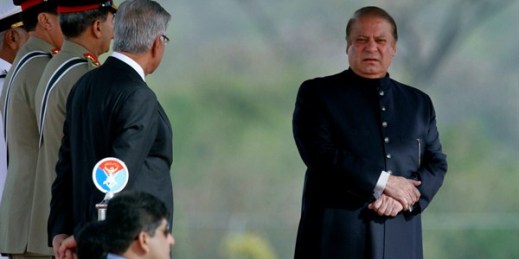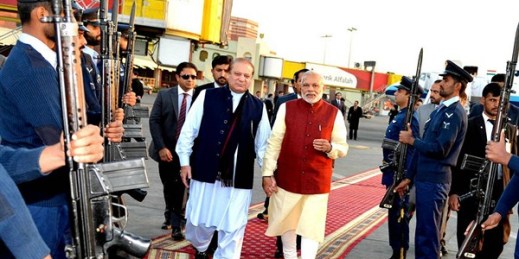
Last weekend, a U.S. military drone killed Akhtar Mohammad Mansour, the leader of the Afghan Taliban, as he drove home from Iran to Pakistan’s Baluchistan province. This was a bold action, marking the first time an American drone strike had been ordered in the Taliban’s home base, rather than in Pakistan’s tribal areas that border Afghanistan. It may not signal yet another new U.S. strategy for the war in Afghanistan, but it is a significant tactical and political shift, recognition that as the Obama administration winds down, trends in the country are not good. As Dan De Luce and John […]


![Japan's Prime Minister Shinzo Abe, center, shakes hands with Myanmar's] President Thein Sein, left, and Thailand's Prime Minister Prayuth Chan-ocha, July 4, 2015 (AP photo by Kazuhiro Nogi).](https://www.worldpoliticsreview.com/wp-content/uploads/2016/05/l_japan_mekong_05172016_1.jpg?w=519&h=259&crop=1)

